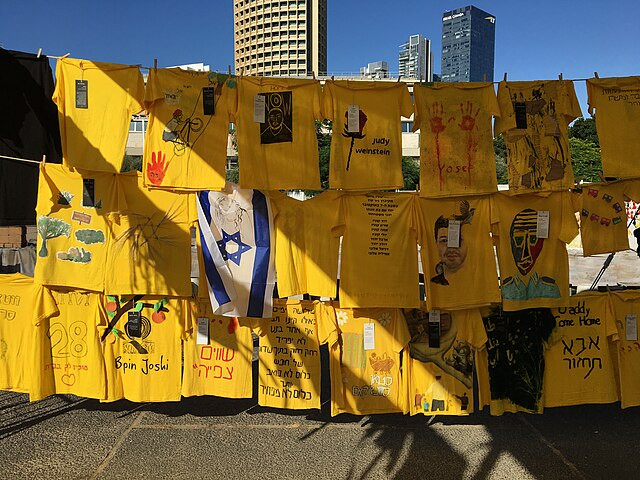Israel and Hamas have reached an agreement to accelerate the release of hostages and prisoners, with Hamas set to release the bodies of four Israeli hostages on Thursday, followed by the release of six living hostages on Saturday. The Israeli Prime Minister's Office confirmed the deal on Tuesday, marking a significant development in the ongoing ceasefire and hostage negotiations.
The agreement includes the return of Kfir and Ariel Bibas, the youngest hostages taken during the October 7 attacks. The two children, who were nine months and four years old at the time of their abduction, were believed to be dead. Hamas first claimed in November that the Bibas children, along with their mother, had been killed in an Israeli airstrike, but Israeli officials have not publicly confirmed their deaths. The group previously released their father, Yarden Bibas, on February 1.
Khalil Al-Hayya, head of Hamas' negotiating team, stated that the decision to release six living hostages instead of the previously expected three was made as part of the final phase of the first truce agreement. An Egyptian official with direct knowledge of the talks confirmed that negotiations involving Egyptian, Qatari, Israeli, and American officials successfully facilitated the agreement. The same official said that four additional deceased hostages are expected to be returned next week.
As part of the agreement, Israel is expected to release a number of Palestinian prisoners. The deal also includes Israel's commitment to allowing heavy machinery into Gaza for rubble removal and authorizing the delivery of at least 300 mobile homes to provide shelter for displaced civilians.
The urgency of the agreement comes amid growing concerns that the fragile ceasefire, now in its final phase, may collapse before reaching its 42-day mark next week. The expedited release of the hostages and prisoners suggests that both Hamas and Israel want to ensure key elements of the deal are completed before tensions escalate again.
Israeli officials indicated that Hamas had initially proposed accelerating the timeline last week, reportedly seeking to secure the release of 47 senior Hamas members who had previously been freed in a 2011 prisoner exchange but were later rearrested by Israel. "Hamas feared that the agreement will not last until day 42 when these 47 prisoners were supposed to be released, because Israel will blow it up," an Israeli official said.
Among the hostages slated for release are Avera Mengistu and Hisham al-Sayed, two Israeli citizens who have been held by Hamas for more than a decade. In return, Israel has agreed to release over 100 Palestinian prisoners, including women and minors arrested since October 8 who were not directly involved in combat.
The hostage release coincides with Israel's announcement that negotiations for the second phase of the ceasefire deal will begin this week. Foreign Minister Gideon Saar stated that discussions with the United States and other mediators are expected to start imminently, with the goal of securing an extended agreement.
Hamas has signaled its willingness to begin immediate negotiations for the next phase. Al-Hayya emphasized that Hamas remains open to continued dialogue but reiterated the group's position that a long-term ceasefire must include an end to Israeli military operations in Gaza.
Despite the progress, significant gaps remain between Israel and Hamas over the administration of Gaza post-conflict. Israeli leaders have repeatedly stated that they will not accept any future governance structure that includes Hamas, while Hamas insists on maintaining its influence in the region.
The Israeli security cabinet met on Monday to discuss its stance on the next phase of negotiations. Officials acknowledged that formal talks for phase two were supposed to begin three weeks ago but have yet to gain traction. With less than two weeks remaining before the first phase expires, the outcome of these discussions will likely determine whether the ceasefire holds or renewed hostilities erupt.




